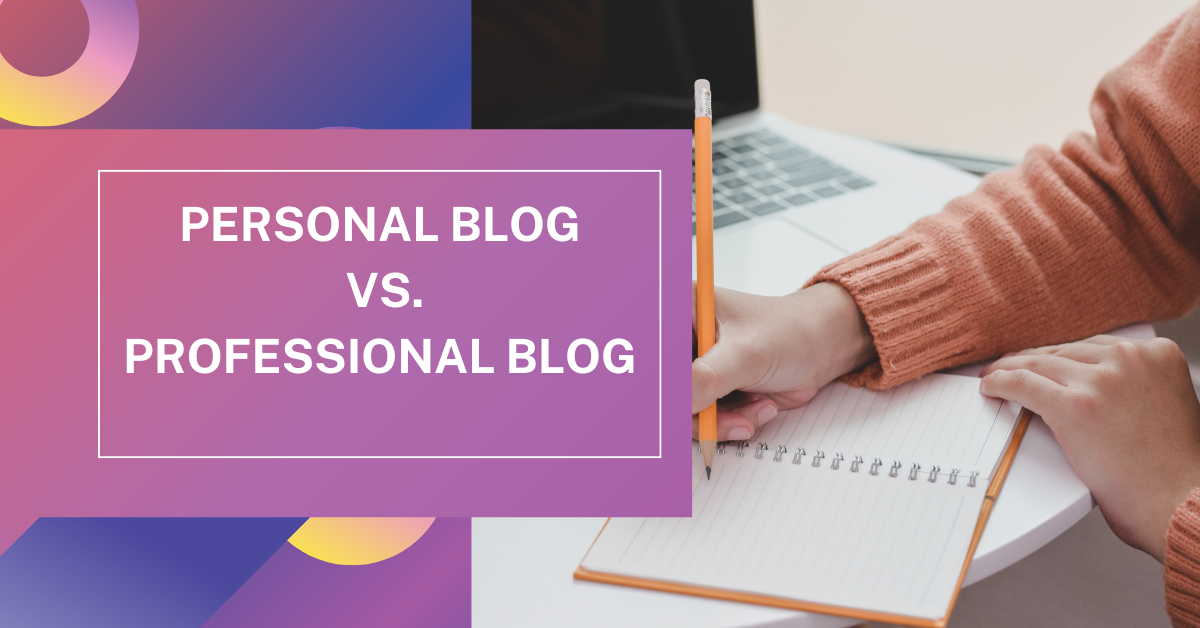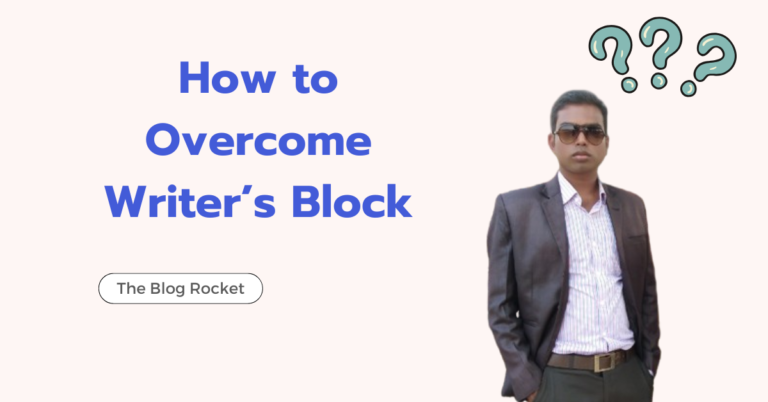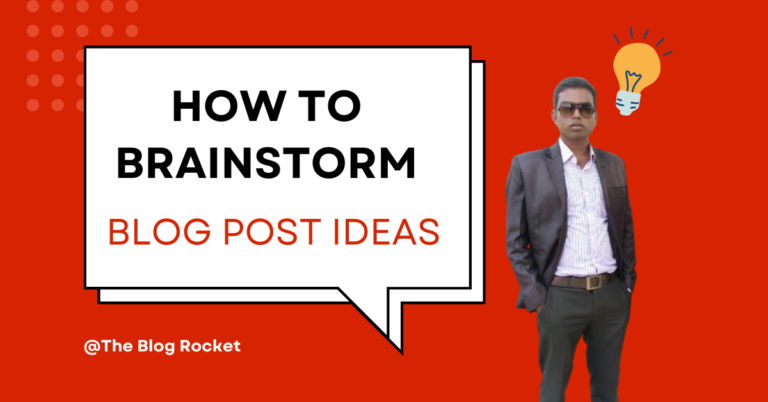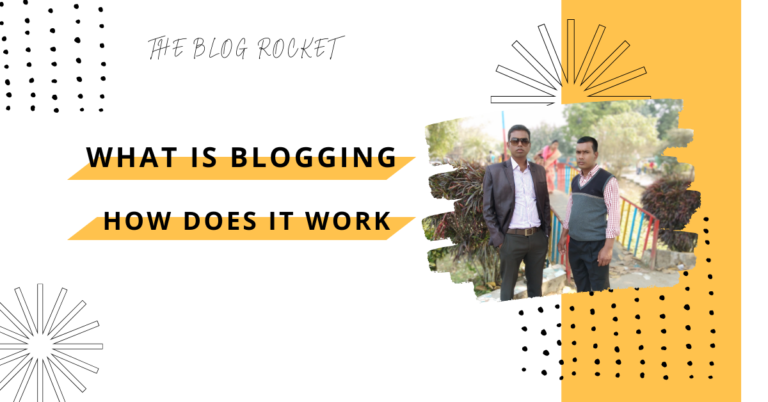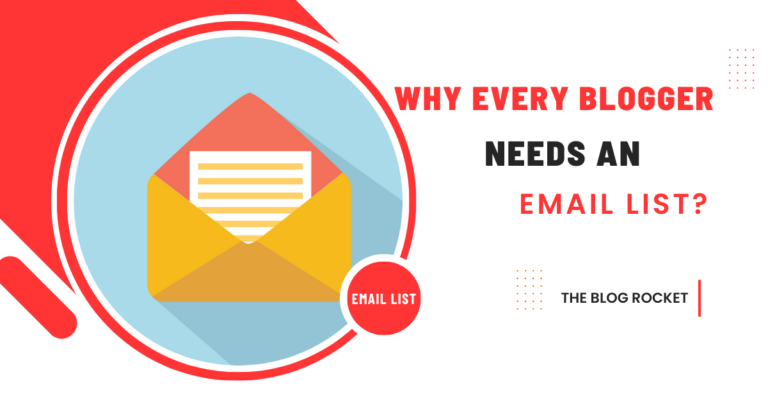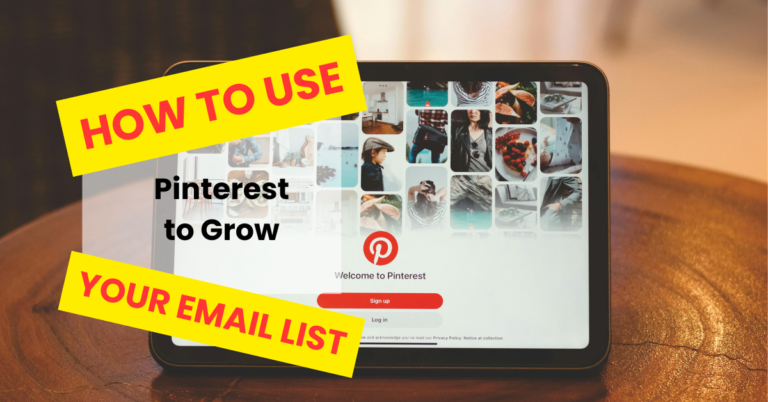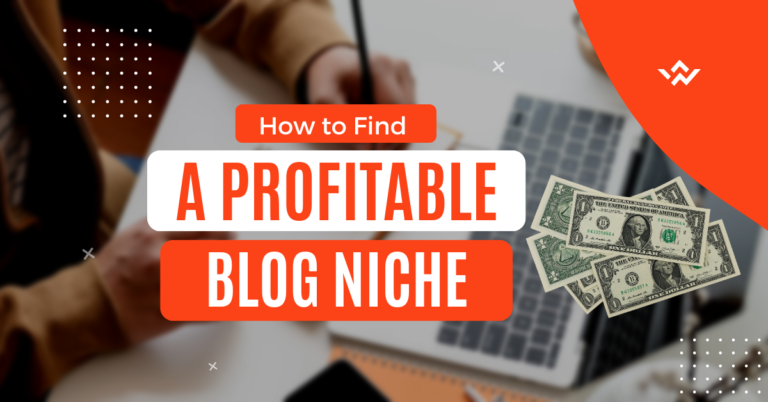So, you’re thinking of starting a blog—awesome! You’ve probably heard all sorts of things about personal and professional blogs and might be wondering which one is the right choice for you.
Having been in the blogging world for years, I can assure you that the choice between a personal and professional blog can shape your entire blogging journey. But fear not, I’m here to guide you through this crucial decision.
In this article, I’ll break down the differences between personal and professional blogs, share some real-life examples, and explain why you might want to consider starting your blog with a business mindset.
Please grab a cup of coffee, and let’s dive in.
Contents
- 1 What Is a Personal Blog?
- 2 What Is a Professional Blog?
- 3 What Do Personal and Professional Blogging Have in Common?
- 4 How Are Personal and Professional Blogs Different?
- 5 Why You Should Start a Professional Blog
- 6 How to Make a Personal Blog with a Professional Twist
- 7 How to Become a Professional Blogger
- 8 Final Thoughts
- 9 Related FAQs
- 9.0.0.1 Q: Can I start a personal blog and turn it into a professional blog later?
- 9.0.0.2 Q: How long does making money from a professional blog take?
- 9.0.0.3 Q: Do I need technical skills to start a professional blog?
- 9.0.0.4 Q: What’s the biggest mistake new bloggers make?
- 9.0.0.5 Q: Can I monetize my blog?
What Is a Personal Blog?
Let’s start with the basics—What does a personal blog mean? A personal blog is like your little corner of the internet where you can share whatever you want.
It’s about self-expression, sharing your experiences, hobbies, opinions, or even documenting your day-to-day life.
It’s a digital journal where you connect with others who share your interests, fostering a sense of community and personal connection.

Personal Blog Examples
To give you a better idea, here are some personal blog examples:
- Travel Blogs: A personal blog that documents your adventures around the world. These often include stories about your travels, photos, tips, and even reflections on your learning.
- Lifestyle Blogs are about sharing your everyday life—whether it’s fashion, food, fitness, or parenting. They’re a mix of everything that makes you, well, you!
- Personal Development Blogs: These blogs focus on your growth journey, sharing lessons learned, books read, and tips on becoming the best version of yourself.
I started my blogging journey with a personal blog focused on my love for cooking. It was a great way to share my passion with the world, and I loved the freedom of writing about whatever I felt like. But, as much as I enjoyed it, I realized that turning my blog into something that could pay the bills required a different approach.
Personal Journal Blog
A personal journal blog is even more reflective. It’s where you pour out your thoughts, feelings, and experiences—kind of like a public diary. Some people use these blogs to reflect on their lives, set goals, or even work through tough times. It’s deeply personal and can be incredibly rewarding.
But here’s the thing—personal blogs are amazing for self-expression, but they can be challenging to monetize or scale. If your goal is eventually turning into a business, you might want to think more strategically.
What Is a Professional Blog?
Now, let’s delve into professional blogs. These are strategically designed to build a brand, establish authority in a niche, or generate income.
It’s less about you and more about providing value to your readers, setting you up for long-term success.

Professional Blog Example
Here’s a professional blog example:
- Digital Marketing Blogs: These blogs provide tips, strategies, and insights into digital marketing. They’re aimed at helping businesses and individuals grow their online presence, and they often generate income through affiliate marketing, sponsored posts, or selling digital products.
- Tech Blogs: These niche blogs cover the latest technology, offering reviews, tutorials, and news. They attract a specific audience and often monetize through advertising and partnerships with tech companies.
When I transitioned from a personal to a professional blog, I focused on helping others start their blogging journey. My blog became a resource where beginners could learn the ropes and find tips on SEO, content creation, and monetization strategies. It was a game-changer—not just for my readers but also for me.
How to Become a Professional Blogger
Becoming a professional blogger isn’t just about writing great content—it’s about thinking strategically from day one. Here’s how you can start:
- Choose a Niche: Pick a topic you’re passionate about and have an audience willing to pay for advice, products, or services. This balance is key to success.
- Content Strategy: Plan your content around what your audience wants to know. Solve their problems, answer their questions, and become their go-to resource.
- Monetization: Consider how you’ll make money, whether through ads, affiliate marketing, digital products, or services.
- Consistency: Consistency is crucial. Post regularly, engage with your audience, and keep improving your content.
- SEO and Marketing: Learn the basics of SEO to drive organic traffic and use social media to promote your blog.
By treating your blog like a business from the start, you’re setting yourself up for success. It took me a while to shift my mindset, but the results were significant once I did.
What Do Personal and Professional Blogging Have in Common?

Despite their differences, personal and professional blogs have much in common. Understanding these similarities can help you leverage the strengths of both.
Content Creation
No matter what type of blog you’re running, content creation is at the heart of it. You must produce engaging, valuable, and consistent content to keep your audience returning, making them feel valued and integral to the blogging process.
Whether you’re writing about your latest trip to Bali or sharing tips on improving your SEO, the quality of your content matters. Both personal and professional blogs need to captivate their audience, and that’s where your passion and expertise come into play.
Platform and Tools
Most bloggers use similar platforms and tools. WordPress is the go-to platform for many, whether you’re running a personal or professional blog. You’ll also find tools like Google Analytics (to track your traffic) and Yoast SEO (to optimize your content), which are essentials in both cases.
The key difference is how you use these tools. In a professional blog, you’ll focus more on metrics, keywords, and optimizing your content to reach your business goals.
Audience Building
Both types of blogs aim to build an audience. Whether connecting with fellow foodies or targeting business owners, growing your readership is crucial. Email lists, social media, and SEO are your best friends in this process.
In a personal blog, your audience might be smaller but more engaged, often because they feel a personal connection with you. In a professional blog, your audience is there for the value you provide, and while the connection might be less personal, the relationship is built on trust and expertise.
SEO and Traffic Generation
SEO is important for personal and professional blogs, but it’s especially crucial for professional ones. You might get away with writing for yourself and your regular readers in a personal blog. But in a professional blog, optimizing your content for search engines is key to attracting new visitors and growing your business.
Understanding keywords, meta descriptions, and backlinks can help you increase your visibility and attract conversion-friendly traffic.
How Are Personal and Professional Blogs Different?
Now, let’s dig into the differences. Personal and professional blogs serve different purposes and attract different audiences. Knowing these differences can help you make a more informed decision about which path to take.
Purpose and Goals
The biggest difference lies in their purpose. A personal blog is usually about self-expression—your space to share your thoughts, experiences, and interests. There’s no pressure to please anyone but yourself.
A professional blog, on the other hand, has a clear goal—whether that’s making money, building a brand, or establishing authority in a niche. Every content is created with the reader (and business goals) in mind.
Monetization and Revenue
Let’s talk money. Personal blogs can be monetized, but it’s often more challenging. Since your content is varied and less focused on a specific niche, it can be harder to attract advertisers or affiliates. You might make some income through ads or sponsored posts, but more is needed to replace a full-time income.
Professional blogs, however, are designed with monetization in mind. They often have multiple income streams through affiliate marketing, sponsored content, or selling products and services. When I switched to professional blogging, I was amazed at how quickly the income opportunities grew once I focused on providing value and solving specific problems for my audience.
Content Strategy
Your content strategy might be more relaxed and spontaneous in a personal blog. You write what you feel like when you feel like it. This freedom is great, but it can make it harder to build a loyal audience or grow your blog into something bigger.
A professional blog requires a more strategic approach. Your content needs to be planned, researched, and optimized to meet the needs of your audience. You’ll need to think about topics that are relevant, valuable, and have the potential to attract traffic and convert readers into customers.
Target Audience
Personal blogs attract an audience interested in your life, thoughts, and experiences. They come for the personal connection and stay because they feel like they know you.
Professional blogs attract an audience looking for solutions, information, or expertise. They’re less interested in you personally and more in what you can do for them. This difference in audience expectations is key when deciding which type of blog to start.
Why You Should Start a Professional Blog
Now that we’ve covered the differences let me explain why you should consider starting a professional blog—even if you’re starting.

Business Potential
One of the biggest advantages of a professional blog is its business potential. A well-managed blog can become a profitable online business, offering you financial independence and flexibility.
When I shifted to a professional blog, it was like unlocking a new world of opportunities. I went from writing about my daily life to creating content that helped people—and that change made all the difference. My blog became a business, and I was able to quit my day job and focus on it full-time.
Market Demand and Niche Opportunities
Professional blogs tap into market demand. Focusing on a specific niche can attract a targeted audience that is more likely to engage with your content, trust your recommendations, and make purchases.
Think about it—people are always looking for solutions to their problems. Whether it’s how to start a blog, improve their fitness, or manage their finances, there’s a demand for expertise. If you can meet that demand, your blog can become a valuable resource that people are willing to pay for.
Authority and Influence
A professional blog can help you build authority in your chosen niche. As you consistently provide valuable content, people will start to see you as an expert. This authority can lead to speaking gigs, partnerships, and book deals.
When I focused on blogging tips and strategies, I began to get noticed by others in the industry. This led to guest posting opportunities, collaborations with other bloggers, and even speaking engagements at blogging conferences.
Monetization Strategies
Let’s talk about monetization. With a professional blog, you have multiple ways to make money:
- Affiliate Marketing: Earn a commission by promoting products or services that you believe in.
- Sponsored Content: Partner with brands to create content that promotes their products or services.
- Digital Products: Create and sell eBooks, courses, or printables.
- Services: Offer consulting, coaching, or freelance services related to your niche.
These are just a few examples. The key is to diversify your income streams so that you’re not reliant on just one source of revenue.
Work-Life Balance and Flexibility
One of the best things about professional blogging is the work-life balance it can offer. When you run your blog, you set your schedule. This flexibility allows you to balance work with family time, travel, or whatever else is important.
When my blog became my full-time job, I could spend more time with my family and pursue other passions, all while earning a living doing something I love.
How to Make a Personal Blog with a Professional Twist
If you’re still drawn to the idea of a personal blog, that’s okay! The good news is that you can start a personal blog with a professional twist—giving you the best of both worlds.

Choosing a Niche or Focus
Even in a personal blog, it helps to have a niche or focus. This doesn’t mean you have to limit yourself, but having a general theme can help attract a more dedicated audience. For example, if you love travel and cooking, you could focus on international cuisine—sharing recipes inspired by your travels.
Setting Up the Blog
When setting up your blog, think professional from the start. Choose a platform like WordPress, invest in a good domain name, and select a clean, professional design that reflects your brand.
Content Creation with a Purpose
While you can still share personal stories, try to frame them in a way that provides value to your readers. For example, instead of just writing about your trip to Paris, you could share tips on exploring the city on a budget. This way, you’re still expressing yourself but also helping your readers.
Growing Your Blog
Apply professional strategies to grow your blog. Optimize your content using SEO, promote your blog on social media, and engage with your audience through email newsletters. You can build a fulfilling and financially rewarding blog by combining personal storytelling with professional techniques.
How to Become a Professional Blogger
Ready to go all in? Here’s a step-by-step guide on how to become a professional blogger.
Identifying a Profitable Niche
First, you need to identify a profitable niche. This is where your passion meets market demand. Think about what you love and how it can solve a problem for others. Use tools like Google Trends or Keyword Planner to research potential niches and discover what people are searching for.
Building a Content Plan
Next, create a content plan. This is your roadmap for what you’ll write about, how often you post, and how your content will serve your audience. Your content should mix evergreen topics (always relevant) and timely posts that capitalize on current trends.
Monetization Strategies
Decide on your monetization strategies early on. Whether it’s affiliate marketing, sponsored content, or selling products, plan how to generate income from your blog. The earlier you start thinking about monetization, the better.
Marketing and Growth
Marketing is crucial for a professional blog. Learn the basics of SEO, use social media to promote your content, and build an email list to keep in touch with your readers. The more proactive you are in marketing, the more your blog will grow faster.
Scaling Your Blog as a Business
Once your blog is established, consider scaling it. This might involve creating digital products, offering services, or expanding into new niches. The goal is to turn your blog into a sustainable business that continues to grow.
Final Thoughts
Starting a blog is an exciting journey, and it’s important to decide between personal and professional. While personal blogs offer freedom and creativity, a professional blog sets you up for long-term success and growth.
Treat blogging as a business from day one, and you’ll open doors to opportunities you never imagined.
Whether you’re just starting or looking to take your blog to the next level, remember that with the right mindset and strategy, blogging can be more than just a hobby—it can be a thriving business.
So, what are you waiting for? Start your blogging journey today, and let’s make something amazing!
Related FAQs
Q: Can I start a personal blog and turn it into a professional blog later?
A: Absolutely! Many successful bloggers start with a personal blog and gradually shift towards a more professional approach as they see opportunities for growth and monetization.
Q: How long does making money from a professional blog take?
A: It varies, but with consistent effort, most bloggers start to see some income within 6 to 12 months. However, turning a blog into a full-time income might take a few years.
Q: Do I need technical skills to start a professional blog?
A: Not necessarily. While some basic technical skills are helpful, many user-friendly platforms like WordPress make starting easy. Plus, you can learn as you go!
Q: What’s the biggest mistake new bloggers make?
A: One of the biggest things that could be improved is needing a clear focus or niche. Defining your niche early on is important to attract the right audience and create content that resonates with them.
Q: Can I monetize my blog?
A: Yes, through sponsored posts, affiliate marketing, and ads, though the potential might be lower than professional blogs.
We’d love to hear your thoughts and experiences on personal vs professional blogging.
Please share your insights in the comments below and subscribe to our newsletter for more blogging tips and insights!

